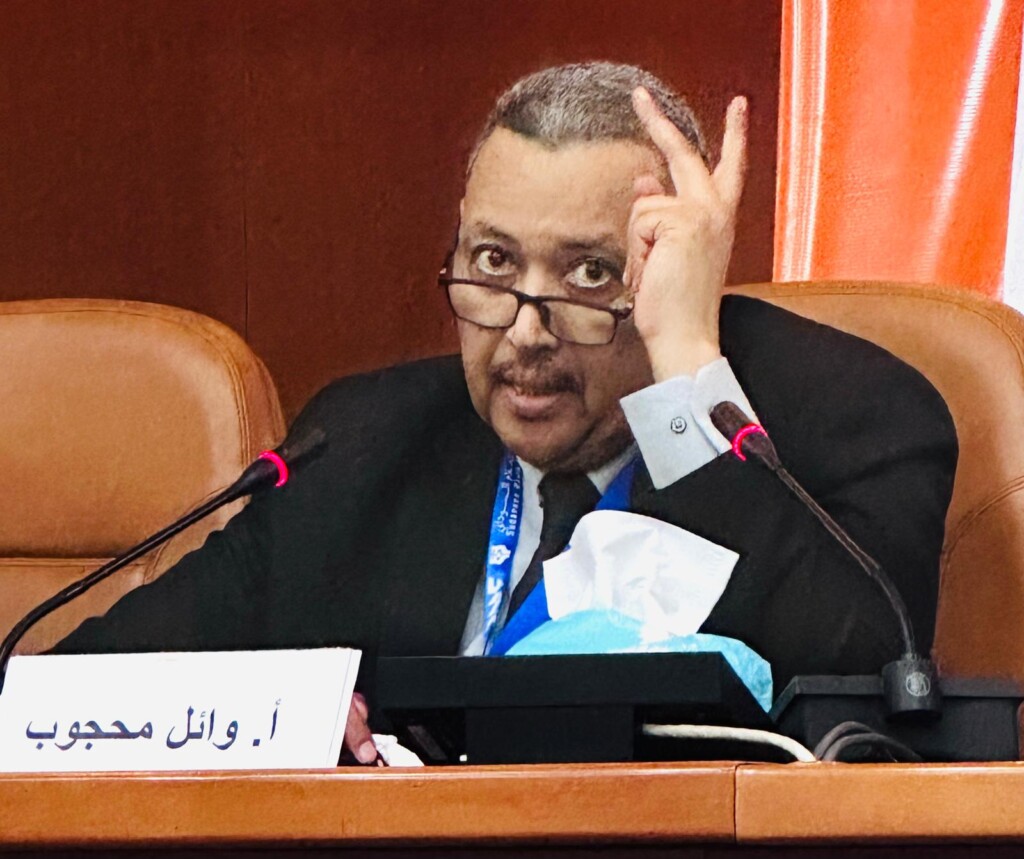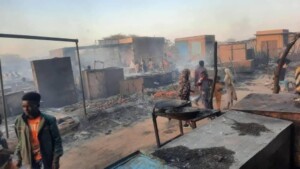Analyst: New wave of war crimes in wake of Sudan army’s advance on El Gezira

Journalist and political analyst Prof Wael Mahjoub (Photo: Supplied)
As local and international reactions continue to condemn the horrific violations witnessed in El Gezira after the army and allied forces advanced on the state on Saturday, recapturing the key town of Wad Madani, pressure is mounting on the Port Sudan government to take legal action to prevent the expansion of the scope of the violations and to punish the perpetrators to avoid counter-reactions.
In an interview with Dabanga – Radio TV Online, journalist and political analyst Prof Wael Mahjoub confirms that the current war in Sudan has witnessed the commission of various types of war crimes defined under international law and the Sudanese Armed Forces Law.
The recapture of Wad Madani by the SAF has prompted a wave of disturbing reports highlighting widespread violations against civilians. Alarming footage circulating on social media shows SAF forces and allied forces carrying out torture, extrajudicial killings, and widespread destruction in areas previously controlled by the paramilitary Rapid Support Forces (RSF).
Mahjoub stresses “that the severe damage resulting from this war has occurred primarily on civilians through indiscriminate killing, through killing by artillery shelling targeting civilian sites, killing by air strikes, and extrajudicial killing, arbitrary arrests and placing prisoners in inhumane conditions as we witnessed in El Gezira state, in addition to the displacement and expulsion of civilians from their cities and villages.”
What is happening in El Gezira is a war crime
“This war as overflowing with crimes against civilians in various areas witnessing military operations,” Majoub laments, calling the latest violations” an extension of the horrific war crimes that are taking place. The current campaign of violations was preceded by a campaign of serious and catastrophic violations targeting large groups and massacres against civilians when the Rapid Support Forces entered El Gezira state [in December 2023-RD].
Mahjoub added that the current violations represent a new cycle of violence directed against civilians after the army and its supporting forces entered El Gezira. “All these crimes fall within the framework of war crimes and cannot be overlooked or ignored because they violate local laws, primarily the Armed Forces Law, whose provisions apply to soldiers of the armed forces and all supporting forces. These violations also violate international humanitarian law, which prohibits this type of crime and sets clear principles for dealing with civilians and prisoners in wartime.”
‘There is a role that civil forces, social symbols and religious leaders are supposed to play to calm the moods and close the door to the great strife that could turn this war into a curse that lasts for decades…’
Regarding the means to confront these violations, Majoun suggests that “the first important step is to arrest the perpetrators of these violations to remove any popular turmoil or counter-reactions and to avoid slipping into the mentality of counter-mobilisation and revenge. This step is important because these crimes targeted specific tribal components, most of whom come from specific regions in Sudan.”
Legal deterrence and combating hate speech
Mahjoub calls for these legal measures to be accompanied by a counter-speech to the hate speech and racism that a large number of activists are working to spread on social media and incite these forces to commit more crimes. He noted that this speech is illegal and that the instigators should also be subject to legal prosecution because this speech in turn falls within the framework of war crimes.
‘Sudan’s civil, social, and religious leaders are expected to calm the mood and close the door to the great strife that could turn this war into a curse that lasts for decades…’
Majoub concludes that “hate speech targeting tribal, racial or ethnic components during the war is criminal complicity in any act issued against these components. In addition, there is a role that civil forces, social symbols and religious leaders are expected to play a role to calm the mood and close the door to the great strife that could turn this war into a curse that lasts for decades.”











 and then
and then